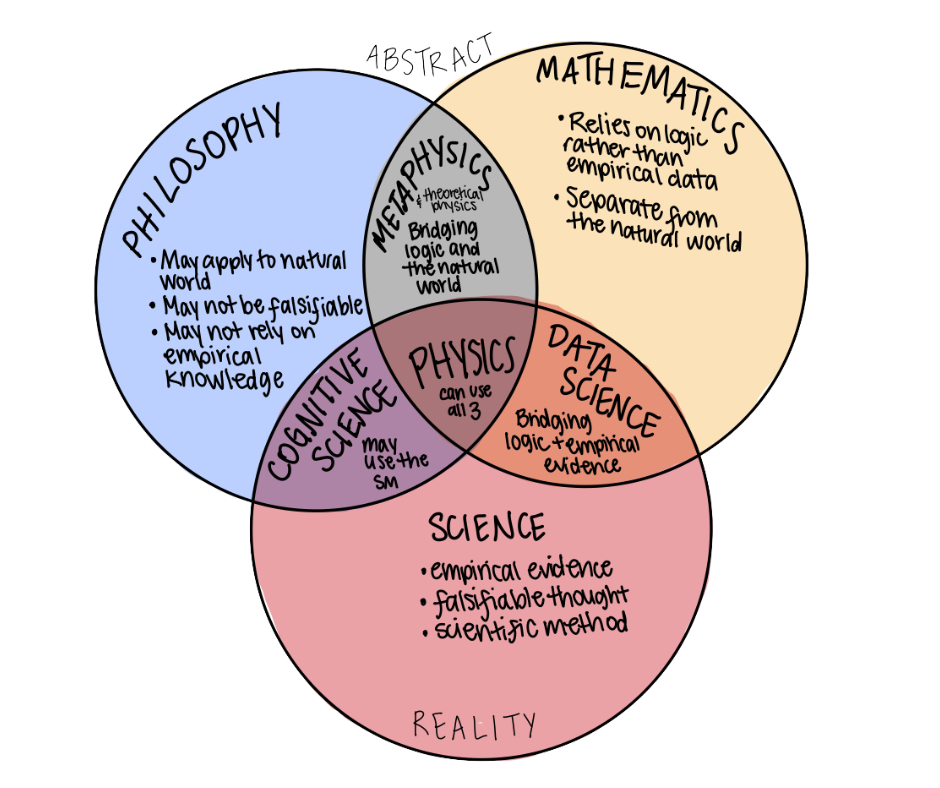.
Philosophy
Taxonomy
_______________
Is Philosophy a Science?
_______________
_______________
The two subjects have a common ancestor; here's where the split began.
_______________
O
ne, a line of iron splitting the true and the false with the precision of the finest sword. The other, a seeming shot in the dark, an uncertain watch over the haze with little aspirations of hitting the mark — if there even is any. And yet, they’re uniquely similar, begging the question: Is philosophy a science?
The reflexive answer is no, but every question has its circumstances, and the description of philosophy wasn’t always as mystified as it commonly appears now.
By the 19th century, Natural Philosophy was the stream through which all new knowledge flowed, defined by the reason-based logic behind its philosophical pursuits – the same logic that would form the early stages of modern scientific thought. Philosophers and Mathematicians alike considered themselves akin to the other: Isaac Newton’s principles of physics, now cornerstones of the scientific field, were published as principles of Natural Philosophy (Philisiohiæ Naturalis Principia Mathematica, 1687); Galileo, the first astronomer, prefaced his work with the phrase “Philosophy is written in this book”; Pythagoras considered himself before anything a philosopher. Figureheads of seemingly polar subjects to humanities-immersed Philosophy saw themselves at the heart of the latter. If the discoveries themselves didn’t cause the shift, it was the logic behind them that sent Science, Mathematics, and Philosophy reeling in different directions.
In the 19th century, the emergence of a scientific method known as the hypothetico-deductive model, functioning only with a certain type of dilemma, resulted in a divide between what was and wasn’t investigable through it, ultimately causing the rift in the three subjects. The hypothetico-deductive model requires a hypothesis, or argument, which can then be tested to evaluate an unknown variable (very similar to the model commonly used in today’s school science experiments), and requires a testable set of conditions or circumstance to function; theoretical or theological questions common in philosophical inquiries were unable to be answered in this manner. [a] An initially binary method – either the hypothesis is true or false – ultimately concretely divides two domains: the real, or physical, with the mental, or abstract. [b]

This diagram explains the divisions between the three fields, depending on method of investigation and scope.
Yet Philosophy still bleeds around the edges of Science (and Math), and will evolve to do more or less in the domains around it: cognitive science, metaphysics, and subjects requiring non-experiment-based or non-empirical thought transgress the borders of Philosophy, and philosophers, logicians, scientists, and figures from surrounding disciplines blend among each other to advance, question, and follow progress, no matter where it goes.
But these are just classifications, and these are all thoughts, and these are all words.
Image Credit: Thomas Hobbes, Science Source Prints. Edited by The Boston Hound.
[a]: Common philosophical questions as to the validity of the method argue it’s not a valid way to achieve any sort of conclusion, proposing the question: does the hypothetico-deductive method actually prove anything? Technically, it is only capable of falsifying a given hypothesis; no infinite amount of experiments testing it can be made, let alone lead to the same exact conclusion, and there may be an circumstance – an outlier – invalidating the entire original argument or prediction.
For example, saying the following: everyone has a voice inside of their head. Should every person be polled in the world, one’s dissent makes the experiment crumble, compared to everyone’s agreement; and even then, the population is ever-growing, and the “exception” may have just been missed.
[b]: This binary neglects the idea of an inconclusive result based on (lack of) data, called the underdetermination of theory by data.
Additional Sources:
World Population Review. “Totalitarian Countries.” https://worldpopulationreview.com/country-rankings/totalitarian-countries.
Amnesty International. Report: Saudi Arabia. https://www.amnesty.org/en/location/middle-east-and-north-africa/middle-east/saudi-arabia/report-saudi-arabia/.

